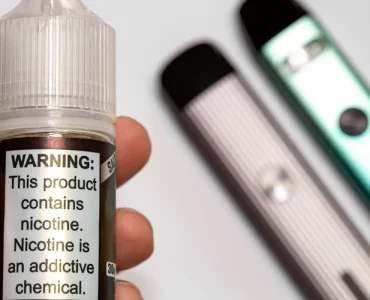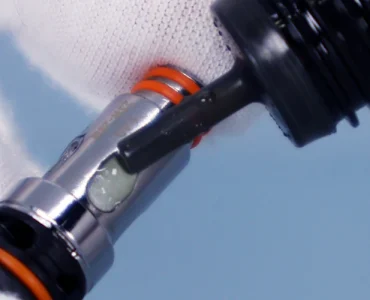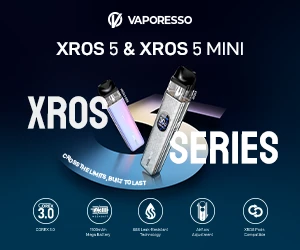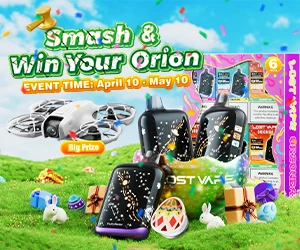The rise in popularity of THC and other cannabinoid vape carts has been closely accompanied by a growing black market for fake and counterfeit products. Fake weed carts, far from being just an annoyance for consumers, often contain subpar materials, low-quality cannabis oil, and unapproved additives and can pose significant health risks.
Knowing how to identify fake carts and understanding the potential dangers associated with them is essential for anyone who vapes or plans to vape cannabis products.
- Fake weed carts are designed to look like products offered by state-regulated or reputable cannabis brands. Containing low-quality ingredients, impurities, unsafe additives, or even no cannabinoids at all, using fake carts could be unpleasant, unsatisfying, or even dangerous.
- Unsafe additives used in fake or black market weed carts, such as Vitamin E Acetate, have previously resulted in thousands of hospitalizations and dozens of deaths. Avoiding buying and using fake carts should be priority number one for any cannabis vaper.
- Other potential health hazards of using fake, counterfeit, or black-market weed carts include dizziness, headaches, chest pain, coughing, airway irritation, nausea and vomiting, and respiratory damage. Badly made fake carts could even get hot enough to burn or explode.
- Carefully evaluating the packaging, testing information, price, oil viscosity, and build quality of weed carts should help to ensure you don’t get tricked into buying a suspect product. Giving your custom only to reputable local dispensaries or online stores is also advisable.
What is a Fake Weed Cart?
Almost as soon as vaping THC and other cannabinoids became a thing and companies sprang up to supply the growing demand, unscrupulous people began making and selling fake carts to cash in on the popularity.
In some cases, fake carts are made using ingredients and components similar to real carts and the makers are only seeking to take advantage of a brand’s hard-won popularity. But the reality is that to squeeze the maximum profit from each sale, most fakes or counterfeits are made with low-quality cannabis oil, cheap and potentially harmful thinning agents, and sometimes with no cannabis/hemp-derived ingredients at all.
To highlight how dangerous adding just one untested ingredient to carts can be, consider the 2019 outbreak of EVALI (E-cigarette or Vaping Associated Lung Injury) which killed dozens of people. This outbreak was directly linked to black-market cannabis vape carts that contained Vitamin E Acetate, an ingredient added because it made the weak, diluted THC oil in the cart look and behave like pure THC oil. A financial win for the fakers, but a big loss to the thousands of people hospitalized and the 68 who sadly died after using it.
The first fake weed carts were probably fairly easy to spot but relied on the inexperience among users as to what each brand’s cart and packaging should look like. The same can’t be said about modern fakes, and if you don’t know what to look for, mistakenly buying a counterfeit cart today is probably more likely than it has ever been.
How to Tell If Your Weed Cart is a Fake

Cart Packaging is Often the First Clue
It is probably easier than ever for even small-scale cart counterfeiters to duplicate the packaging designs of reputable THC cart brands. You need little more than a computer, widely available design software, and a decent printer. However, most black market cart sellers will likely buy pre-made packaging from companies (both at home and abroad) that specialize in such things.
Despite fake packaging being increasingly high-quality, there are still things to look out for that should make you think twice about the source of a weed cart. Obvious things like spelling errors and major printing mistakes are unlikely to be seen on packaging used by reputable sellers. Nor are unusual or unrealistic claims like “Guaranteed to cure the flu and prevent male hair loss”.
One increasingly common thing seen on counterfeit and black market weed cart (and also nicotine vape) packaging is the use of trademarked characters. It is extremely unlikely that Marvel would allow Spiderman to be used on a THC cart box, and equally unlikely that a reputable cannabis brand would choose to use such an obviously child-friendly character.
THC Cart Testing, Testing, One, Two, Three
There are fairly strict regulations around the sale of cannabis products, and while these regulations vary state-by-state, there are several key pieces of information that every reputable cannabis seller should be able to provide. Delta 9 THC products generally need to show license and batch numbers, and should also display the manufacturing date. If this information isn’t displayed on the product and the dispensary can’t provide it to you, the cart could be fake.
Legitimate Delta 9 THC carts will often have a QR code sticker on the packaging. This is there to allow you to quickly check the testing and approval status of that particular product. Just scan the code with your phone and you’ll be able to see all of the info you need to make a safe buying choice. Be sure to carefully compare the information on the product with the information online.
The testing rules for hemp-derived cannabinoid products like Delta 8 THC, CBD, and HHC are not as strict as those that govern the sale of Delta 9. However, a good sign that a seller is reputable and can be trusted is if they voluntarily test their products and make the independent lab results available to view. Any company unwilling or unable to provide testing results and detailed ingredient lists should be avoided.
Low Price Isn’t Always the Best Price
We all love getting a good deal on the things we buy, but should be very wary if a particular weed cart is being sold much cheaper than carts with supposedly similar contents. That ten-dollar saving won’t feel so great if you end up paying an unwanted visit to the emergency room.
There are certain fixed costs associated with the manufacture of weed carts such as testing fees, state cannabis taxes, and quality raw ingredients. If a one-gram live resin cart is half the average price of similar carts, it could be a sign that corners have been cut somewhere along the line.
That’s not to say that you should make paying full price the be-all and end-all of choosing a real cart. Retailers often have cut-price sales to make room for new stock, particularly online retailers, and there’s no reason to not take advantage of that if everything else seems legit. You’re less likely to encounter this type of price quandary if buying cannabis-derived Delta 9 THC carts, as these can only be sold by regulated dispensaries.
Pay Attention to Product Quality
If you are even slightly concerned that the cart you have bought is a fake, pay close attention to the quality of the components and the liquid inside it. While it takes a bit of experience to be able to look at the consistency of cannabis oil in a cart and tell if it seems right, there are a few important things to remember.
High-quality cannabis oil shouldn’t be thin and watery. When you tilt or gently shake the cart in your hand, you should expect the liquid to appear viscous and relatively free from small air bubbles. Any air bubbles that are in the cart should move slowly through the liquid as you tilt it (think bubbles moving through honey, rather than bubbles moving through water.)
Unfortunately, as mentioned earlier, the potentially very harmful additive Vitamin E Acetate can be mixed with diluted or low-quality cannabis oil to make it more viscous. This means that you should not rely solely on how the liquid behaves when assessing the legitimacy of a weed cart.
The construction quality of the cart itself can also be a sign that something isn’t right. Look for obvious things that generally wouldn’t be accepted on a quality product: unfinished or sharp edges, ill-fitting parts, discolored metal, etc. On their own, any of these could be down to an accidental manufacturing error, but if combined with any of the signs discussed above, they are a pretty clear signal that the cart is fake.
What Does a “Bad” Cart Taste Like?

High-quality unflavored weed carts should provide a smooth, almost neutral taste. Flavored carts should be expected to deliver a clean, authentic flavor that matches what is on the label (i.e., fruit-flavored carts should taste fruity).
Harsh or strange flavors could suggest the presence of unwanted additives or impurities in the oil, which are likely things you don’t want to be inhaling. A metallic or burned flavor from a new cart can also be a sign that it is poorly constructed or contains cheap materials.
Cannabis oil in weed carts is commonly combined with natural terpenes to provide flavor and aroma. High-quality products will almost always use cannabis terpenes, but cheap or fake products have been known to include non-cannabis terpenes. These can produce an unnatural or unpleasant flavor and smell. The use of non-cannabis terpenes isn’t a sure sign that the cart is fake, but it does say a lot about the overall quality of the product.
Dangers of Using Fake THC Carts
Even if you are willing to accept the potential but minimal risks of vaping (and that includes any substance from nicotine to CBD), the risks involved in inhaling the contents of fake THC weed carts are likely to be too high. When you consider even the mild hazards fake THC carts expose you to, any sensible person would have to think it’s just not worth it.
Potential Mild Hazards
- Dizziness
- Headaches
- Chest pain
- Coughing
- Shortness of breath
- Airway irritation
- Fatigue and weakness
Potential Serious Hazards
- Nausea and vomiting
- Respiratory damage
- EVALI (E-cigarette or Vaping-Associated Lung Injury)
- Burns (from hot, malfunctioning carts)
- Unpleasant/Unexpected psychoactive effects
Of course, not every fake weed cart will be dangerous to use, but using fake carts will significantly increase the chances of developing potentially serious health problems.
The Bottom Line
Fake weed carts are more than just a rip-off; they can be a serious health hazard. From low-quality ingredients to dangerous additives, using black-market weed carts can lead to anything from mild discomfort to serious lung injuries and worse.
By being vigilant, examining the packaging, checking testing and approval information, and paying close attention to the product quality, you can hopefully avoid falling victim to unscrupulous sellers and the dangers of fake THC weed carts.










Add comment